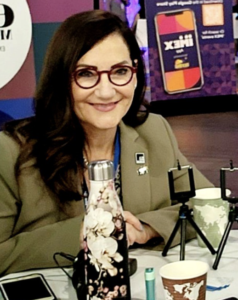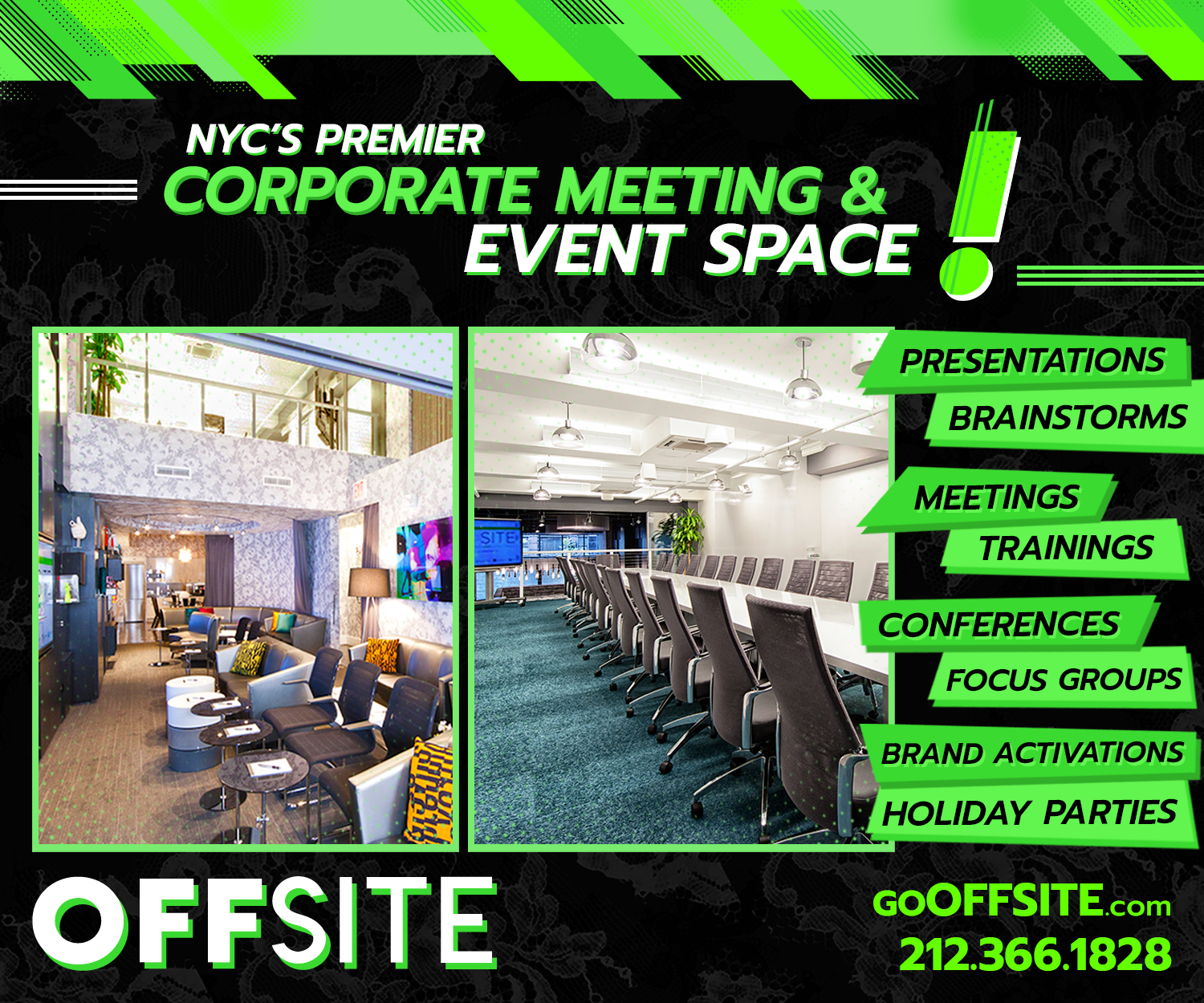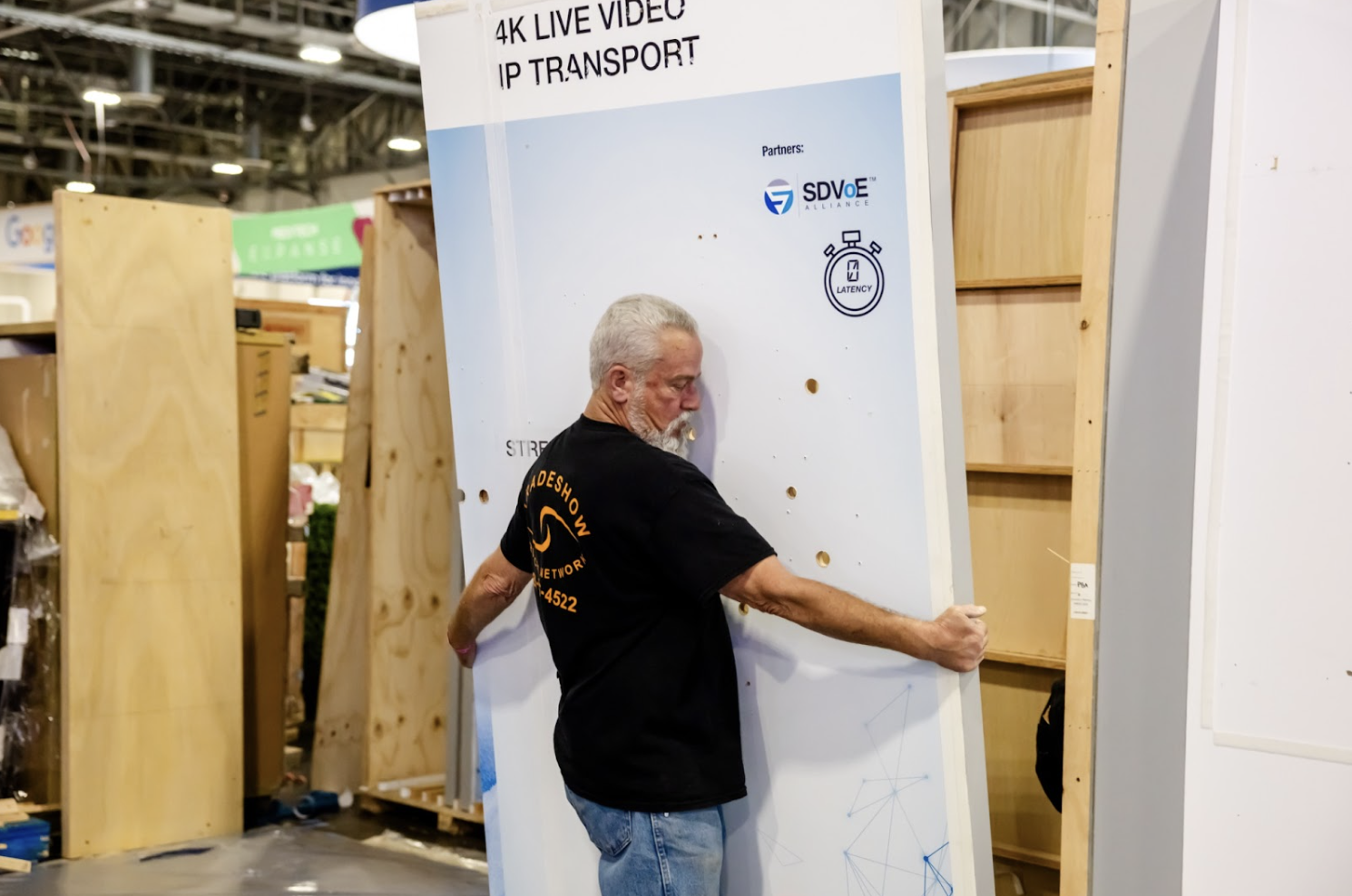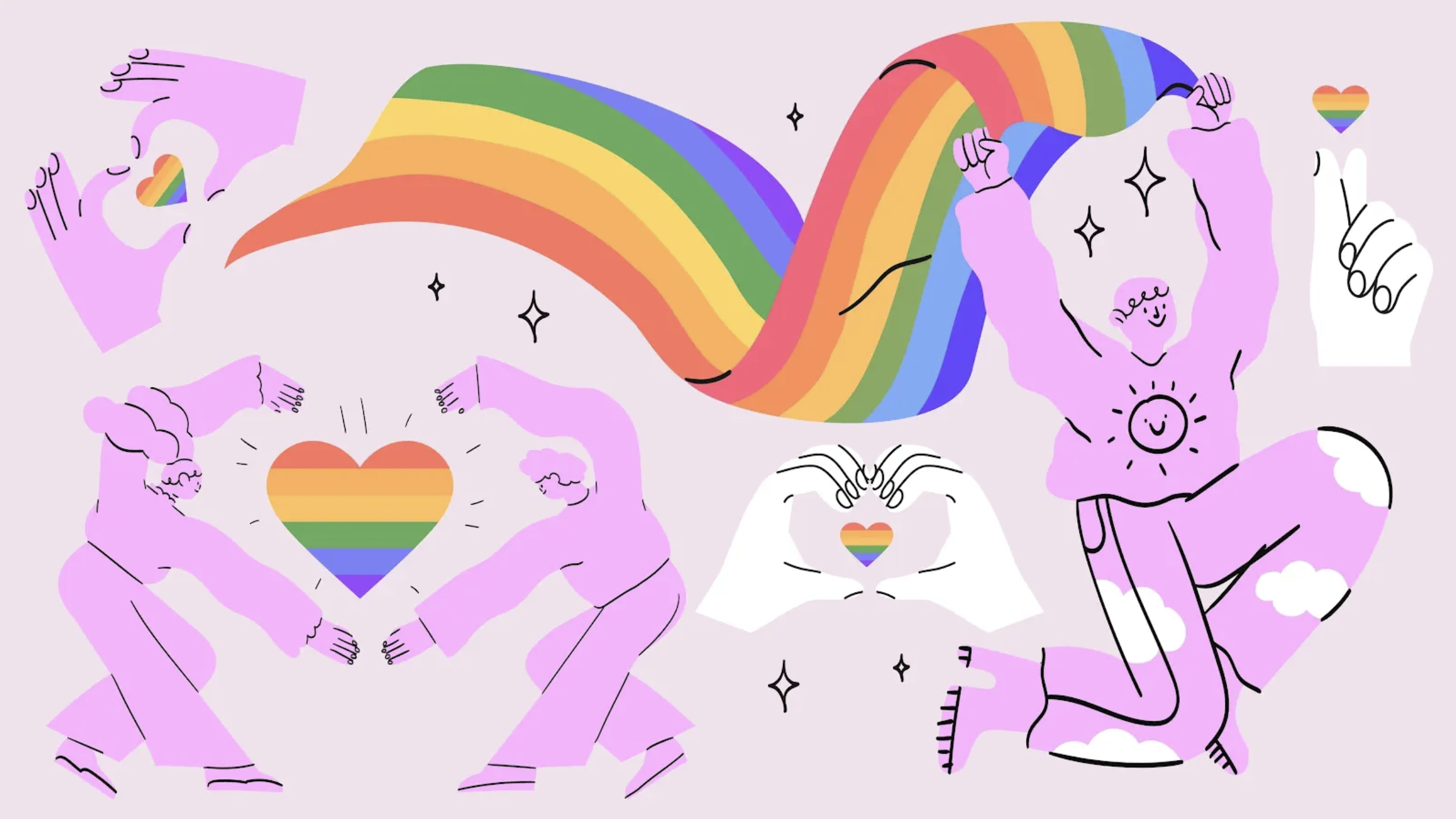Events are infamous for grueling hours and sky-high demands, but a group of seasoned professionals is fighting for change against a slow-moving establishment.
They know the grind all too well: late-night emails, panicked vendor calls and clients who expect round-the-clock availability. More importantly, they know the toll it takes on your mental health.

“My first 10 years of events I was on call almost 24/7, traveling almost every weekend,”said Gabriella Robuccio, a former event planner for ESPN. “I didn’t have a personal life. In my 20s, it felt wonderful. I got to see the entire world. Then I hit 30 and went, ‘I don’t have an identity outside of events.’”
Several people who spoke to Vendelux fell victim to a toxic work culture that asked for more than they could give, leading to diagnoses of anxiety and depression. They describe long days in faraway places that left them isolated from their friends and family. Some felt unsupported by their superiors or by the professional organizations that set the standards for the industry, even as they continued to drive revenue and surpass their goals. Others describe working beyond the scope of their job titles, as managers look to save money by offloading PR, marketing and sales duties to their events teams.

“There’s a lot of different roles that companies try to layer on an events job,”said Michael Alexandre, an event marketer based in the San Francisco Bay Area. “It’s a thankless role, I’ll say.”
A 2022 survey by the Professional Convention Management Association found that 28 percent of planners were “exhausted and burned out.” A lack of work/life balance topped the list of reasons, followed by uncertainties related to the COVID-19 pandemic and a lack of staff. Beyond events, a 2023 survey of more than 10,000 employees worldwide found that 42 percent felt burned out, with women and workers under 30 most at risk.
For event professionals, falling behind leads to guilt and self-blame. Most share a passion for the business of bringing people together, and they’re frightened by the idea of disappointing their bosses, their guests or their potential clients.
“The existential dread is what’s so hard about it, because I love my job so much. I love events,” said Ashley Cruz, who has worked as an event planner for mental health organizations since 2023.
“But it got to a point where I just didn’t care anymore because I was so burned out.”
Some had to choose between their life and their job. “I hit rock bottom and went ‘OK, I won an Emmy, I worked on events in every continent, and I think it’s time to step away from my dream job and focus on me,” said Robuccio.
The Dream Job to Burnout Pipeline
Alexandre went to college for public relations before he realized it wasn’t his thing. A fraternity brother hooked him up with a job as a marketing coordinator, and he gladly accepted. “I saw myself doing events at that job because that’s what the job needed,” he recalled. “I really enjoyed it. I thought it vibed with my personality. I enjoyed that not every day was the same.”
A few years and jobs later, his outlook had done a 180-degree turn. As an event manager at Adyen, a Dutch payment processing company, his marketing goals increased exponentially. Meanwhile, his bosses refused to bring anyone else on. Restructuring and leadership changes followed, and Alexandre’s mental health got worse.
“I noticed that my personality was changing here at home with my family,” he said. “I noticed that there were a couple instances where I was waking up in the middle of the night with cold sweats and night terrors. At that point I was like, ‘This isn’t fun anymore.’”
He sought out therapy for the first time in his life last year. After a few sessions, he was diagnosed with moderate anxiety. “I’m normally a happy-go-lucky type of guy, but the grind of the events world has left me thinking maybe this career ain’t for me,” he said.
The World Health Organization defines burnout as resulting from “chronic workplace stress that has not been successfully managed.” It’s characterized by “exhaustion,” mental distance or “cynicism” about one’s job and lower “professional efficacy.”
Workers across all industries are likely to have either experienced it themselves or know someone who has. Emails are suddenly difficult to respond to, and you may become insubordinate or aggressive as the side-effects of pushing yourself to your limits pile on. “It takes a long time to recover from,” said Cruz. “It’s not a clinically treatable issue. It’s a tough thing to talk to a doctor or a psychologist about.”
Cruz is a community engagement manager at the Mental Health Foundation in Edmonton, Alberta. Her previous job was similar in scope, but the way she was treated made all the difference. “I didn’t have a lot of support,” she said. “I was kind of just thrown in, and they thought, ‘OK, you figure it out.’”
The organization was trying to crawl its way out of pandemic-related malaise, and she was one of the first people hired onto the events team. As the workload got bigger, she would find herself checking her inbox at 2 a.m in the middle of an 80-hour work week.
“I was working so many hours and evenings, and it got to the point where it was no longer sustainable,” she said. “The insomnia was a really big one for me. I already worked all night. On days where I didn’t work late, then I didn’t sleep”.
“It wasn’t a secret. I was very vocal about it. And nothing changed,” Cruz added.
The demands of the job rippled across her life. This is a common theme for burned out event professionals, who find it hard to unplug due to the expectation that they’ll always be available.
“I hadn’t even talked to my sister in months at one point,” said Robuccio. “My busy season was all-consuming.”
For as long as she can remember, Robuccio’s dream job was ESPN. She even attended the University of Connecticut just to be closer to the network’s headquarters in the city of Bristol.
“I actually made it happen. I got myself a job at ESPN right out of college. I was in a tech room working an overnight shift,” she recalled of those early days.
She worked her way into the production management department, putting on major productions for the 2014 FIFA World Cup in Brazil and for College GameDay.

She had good bosses, and she admits that some of the pressures of the job were internal, while others were just part of the invisible but damaging status quo of event production. It wasn’t out of place to see a manager heaping praise on an employee for working an 18-hour day and running to a second event right after.
“It got to a point where I was so incredibly unhealthy, but I was so afraid to do anything about it because of the stigma of the events industry. If you’re not ‘hustle culture,’ working yourself into the ground, then you’re not doing enough,” she said.
Her generalized anxiety and situational depression were “completely exacerbated” by the industry.
After a decade working at the channel, she transitioned out of her full-time job and into a freelance role in 2018. Her style of working, however, didn’t change as quickly as her title. Less than three months after giving birth to a baby girl, she was back on location at another venue. “I’m sitting on the floor of a bathroom in the middle of an event, pumping milk for a daughter who I wasn’t gonna see because I had to leave early in the morning,” she said. “Is this really what I want?”
The Wellness Band-Aid
Perhaps the only thing worse than being mistreated and overworked is being offered patronizing solutions that don’t address the root of the problem.
The terms “wellness” and “self-care” are casually thrown out by managers, HR departments and professional organizations, but to those who understand the pervasive work culture that leads to burnout in the first place, they amount to little more than lip service.

“What’s being handled is the ‘wellness’ which isn’t going to change anything,” said Janice Cardinale, a 20-year veteran of the events industry based in Toronto. Cardinale has battled depression in the past. “I’ve had the experience of not being able to get out of bed in the morning and face the world,” she said. “I have a deeper understanding of these things.”
She has proposed a training curriculum to various professional organizations and major industry players. The training would teach managers how to recognize signs of burnout before it’s too late. It sounds like an easy start, but Cardinale says she’s been met with silence from every major group she’s spoken to.
“They basically shut the door on every conversation,” she said.
On the company level, solutions often seem like a way to kick the can down the road on major structural changes. “There’s now the shift of, ‘We’re gonna offer you BetterHelp,’ and that’s cool and all. I’m not knocking it. They could not offer it at all, but it’s almost like they’re just throwing you a bone,” Alexandre said.
The Professional Convention Management Association (PCMA), Events Industry Council (EIC), Event Leadership Institute (ELI) and Meeting Professionals International (MPI) did not respond to requests for comment from Vendelux.
The Future of Advocacy
Cardinale’s curriculum is part of her efforts as the leader of Event Minds Matter, a mental health advocacy group.
Robuccio has supported Cardinale in her effort to change the way people think of success in the industry.
She’s seen first-hand how organizations— led by much older professionals who benefit from the hustle of younger subordinates—are more interested in piecemeal correctives.
“Janice has spent so much time bringing [the curriculum] to some of the larger agencies, and all we hear is, ‘We promote wellness, we give people a quiet room to go in.’ It feels like they’re focusing on a Band-Aid, rather than looking at it on a systematic level,” she said.
For now, EMM will continue to host in-person and online gatherings to support event professionals in transition and those struggling with their mental health. The group has recently joined forces with Club Ichi, a professional network for B2B event marketers that runs a popular Slack channel.
Cardinale says her movement is inspired in part by End Workplace Abuse, a group trying to introduce a piece of legislation called the Workplace Psychological Safety Act in various states.
Robuccio has found peace, but it’s not lost on her that she had to leave the daily grind to do so.
Last year, she founded ProEventTips, a consulting service that helps early-stage event managers. “I noticed a lot of gaps in the events training industry,” she said. “I really need to teach people this stuff that I realized when I got thrown into the World Cup in Brazil in 2014.”
As you’d expect, mental health is a big part of that.
“Some of my clients are in a real shit situation,” she said. “They’re being micromanaged, bullied by their client, or having a hard time proving themselves, and I work with them to help see where the relationship is lacking and try to provide them with tools to create these healthy boundaries.”
They may not want to, but big-name firms and professional organizations will have to face the music at some point. Young employees are well versed in matters of mental health and work-life balance, and they’re not afraid to speak out.
“The industry associations that are resisting this will cease to exist if they don’t finally embrace it,” warned Cruz. “I’m in my early 30s. It’s not enough that my generation is asking for it. The next generation is demanding it.”




